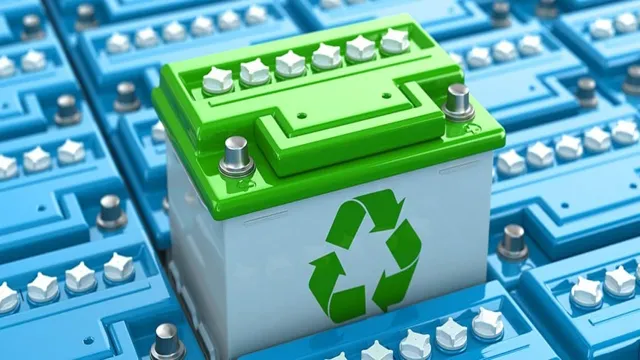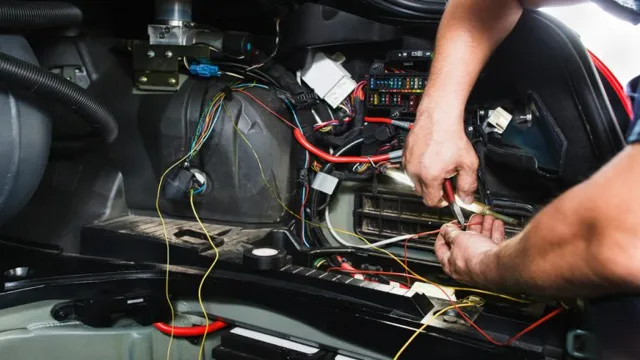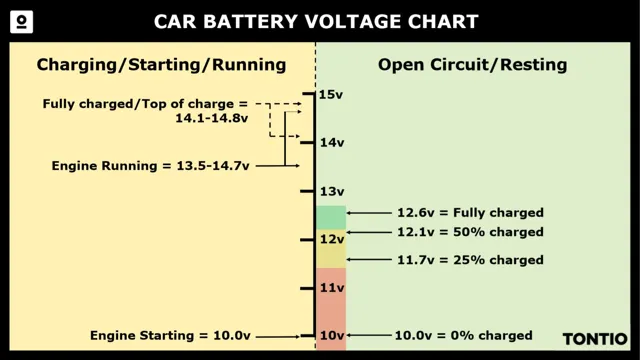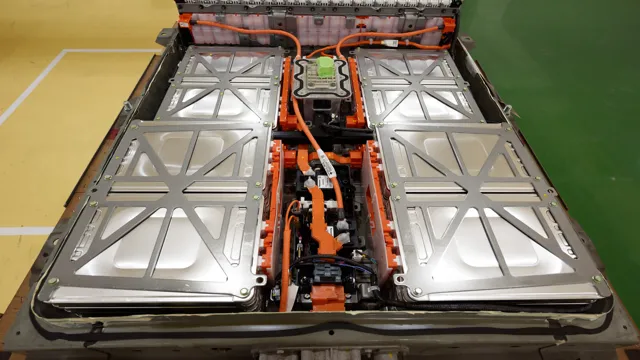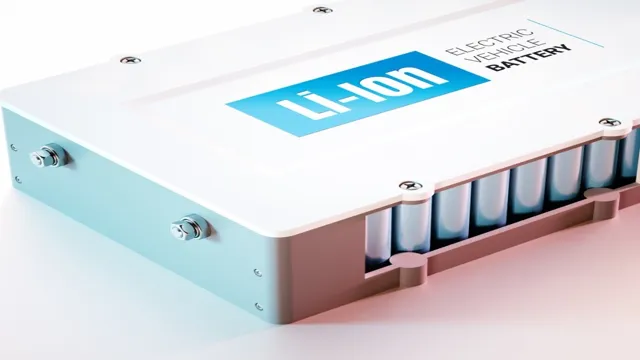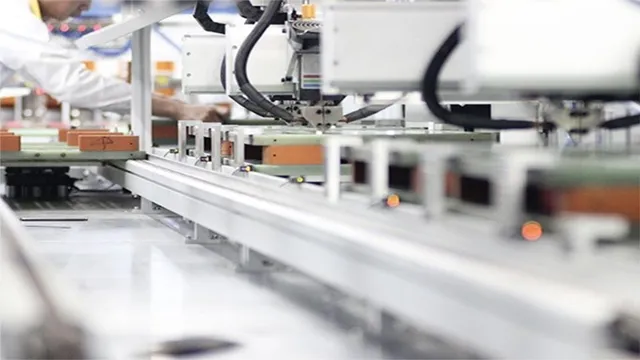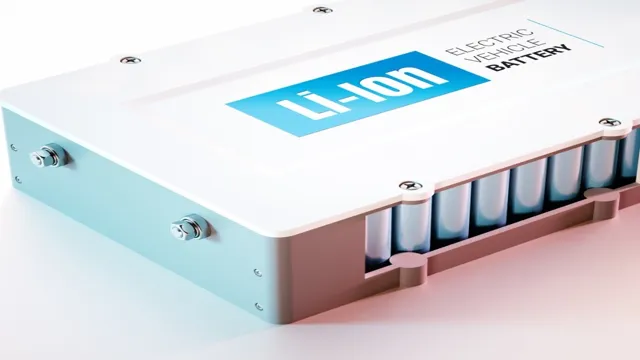Reviving the Electric Revolution: The Future of Sustainable Driving through Battery Recycling
Electric cars have come a long way in recent years, with more and more drivers making the switch to these environmentally friendly vehicles. However, as with any technological innovation, there are still challenges that need to be addressed, particularly around the issue of battery recycling. You may be wondering, why is it so important to recycle electric car batteries in the first place? The answer lies in the materials used to make these batteries and the impact they can have on the environment if they are not properly disposed of.
In this blog, we’ll explore the importance of electric car battery recycling and what it means for the future of sustainable transportation.
Impact on the Environment
When it comes to electric cars, one of the most important things to consider is what happens to the batteries once they’re no longer useful. Thankfully, electric car batteries can be recycled! This has a huge impact on the environment, reducing the amount of waste that ends up in landfills and helping to protect natural resources. Recycling electric car batteries also helps to reduce the need for raw materials like lithium and cobalt, which can be environmentally damaging to mine.
In addition, recycled materials can be used to make new batteries, reducing the energy and resources needed to create them. By choosing to recycle electric car batteries, we can help reduce our impact on the environment and protect our natural resources for years to come.
Harmful Elements in Batteries
Batteries contain a variety of harmful elements that can have severe impacts on the environment. One of the most concerning elements is lead, a highly toxic material that can cause a range of health issues, including damage to the nervous system, reproductive system, and kidneys. When batteries containing lead are not disposed of properly, the lead can leach into the soil and water, causing contamination and potentially poisoning wildlife.
Another hazardous element found in batteries is cadmium, a carcinogenic and mutagenic substance that can cause respiratory problems and kidney damage in humans. When batteries containing cadmium are discarded in landfills, the cadmium can enter the groundwater and contaminate drinking water sources. Additionally, the production of batteries requires the use of large quantities of energy and resources, further contributing to environmental degradation.
It is crucial to recycle batteries and dispose of them properly to minimize the harmful impact on the environment.
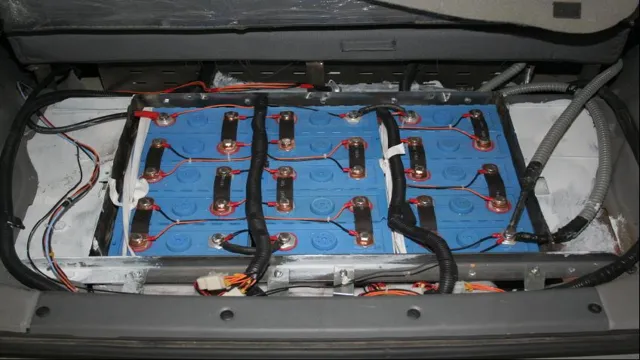
Growing Number of EVs on the Road
As the number of electric vehicles (EVs) on the road steadily rises, we can’t deny the positive impact they’re having on our environment. Instead of emitting harmful gases like traditional gas-powered vehicles, EVs produce zero emissions and contribute to cleaner air and a healthier environment. The transition to EVs is vital in reducing greenhouse gas emissions, which cause climate change and have a significant impact on our planet’s health.
Imagine a world where our streets are filled with zero-emission vehicles, and we no longer have to worry about the damaging effects of transportation on our environment. Even though making the switch to EVs may seem daunting for some, it’s a small sacrifice to make for the greater good. By doing our part and investing in electric cars, we can help safeguard our planet for future generations.
The Recycling Process
Electric car batteries are complex and powerful, and they require diligent recycling processes to minimize waste and harmful environmental impacts. When batteries are taken out of service, they are sent to a recycling facility where they are safely disassembled and sorted by chemistry. Depending on the types of materials in the battery, the recycling process will vary.
For example, lead-acid batteries require a different type of recycling process than lithium-ion batteries. Once the batteries are disassembled, the recyclable materials are extracted, such as cobalt, nickel, copper, and lithium. These materials are then purified and can be reused to manufacture new batteries, which minimizes the need for raw materials sourcing.
Electric car batteries must be recycled safely to protect the environment and the health of people working in the recycling facilities. By responsibly recycling electric car batteries, we can help reduce waste and contribute to a more sustainable future.
Battery Collection and Sorting
When it comes to battery recycling, the first step is collection and sorting. It’s important to properly collect and sort batteries to ensure they are recycled efficiently, effectively, and safely. Different types of batteries require different processes for recycling, so sorting is crucial.
Batteries can be collected from households, businesses, and industries, and then transported to a recycling facility. Once at the recycling facility, batteries are sorted by type and chemistries. This is done to prevent contamination, as different chemicals can cause dangerous reactions if mixed.
The most common types of batteries include Lithium-ion, Nickel-Cadmium, Nickel-Metal Hydride, and Lead-Acid. Lithium-ion batteries are most commonly found in electronics and electric vehicles, while Lead-Acid batteries are used in cars, forklifts, and backup power systems. Once batteries are sorted, they can be processed for recycling.
By properly collecting and sorting batteries, we can help reduce the amount of waste that ends up in landfills and lessen the demand for raw materials needed for new batteries, ultimately helping to create a more sustainable future for our planet.
Battery Shredding and Separation
Battery recycling is an essential process in our modern world, given the increasing demand for batteries used in various industries, including electronic gadgets, renewable energy, and electric cars. Battery shredding and separation play a crucial role in the recycling process by ensuring optimal recovery of valuable metals such as cobalt, lithium, and nickel. Generally, battery recycling starts with shredding the batteries to reduce their size and protect against explosions.
The shredded batteries then undergo a sorting process based on their chemistry, where they are separated into different categories like lithium-ion, nickel-cadmium, lead-acid, and alkaline batteries. After separation, the batteries undergo further processing to remove the electrolyte, plastics, and metals, which are then recovered and used to create new batteries or other products. By recycling batteries, we can reduce the environmental and health risks associated with their disposal in landfills and the extensive mining of metals used in their production.
So, let’s join hands to recycle batteries and make the world a better place to live.
Chemical Processing and Refining
Chemical recycling is a process that aims to transform plastic waste into new materials. This method is different from mechanical recycling, which simply involves melting down the plastic and reshaping it into something new. Instead, chemical recycling breaks down the plastic at a molecular level, allowing it to be transformed into other useful materials.
This method is particularly useful for plastics that cannot be recycled mechanically, such as those that are contaminated or are made from mixed materials. Through chemical recycling, plastics can be transformed into products like fuels, chemicals, and even new types of plastics. This process is still developing, but it holds significant promise for reducing the amount of plastic waste that ends up in landfills and the ocean.
By utilizing this innovative method, we can create a more sustainable future for our planet.
The Benefits of Battery Recycling
When it comes to electric car batteries, it’s important to know that recycling them is not only environmentally-friendly, but it also offers several benefits. One significant advantage of battery recycling is the reduction of carbon emissions. Recycling reduces the need for new resources, which leads to smaller carbon footprints when producing new batteries.
Additionally, it reduces the amount of waste that ends up in landfills, which can have negative impacts on our soil and water. Moreover, recycling batteries saves resources and energy, and it can help to reduce the cost of producing new batteries. Consequently, electric car batteries recycle helps to promote a more sustainable future and encourages manufacturers to create batteries that are both durable and easier to recycle.
By responsibly recycling your electric car batteries, you are not only making a positive impact on the environment, but you are also helping to build a healthier future for us and generations to come.
Reduces Environmental Impact
Battery recycling is a critical process that has numerous benefits. One of the most significant advantages is reducing environmental impact. Batteries contain toxic chemicals that can pollute soil and water and harm both humans and animals.
Recycling prevents these toxic materials from ending up in landfills, where they can cause untold damage to the environment. Additionally, recycling batteries reduces the need for new metal mining, decreasing the energy and resources used in production. This process also cuts greenhouse gas emissions since the production of new batteries requires significant amounts of energy.
By recycling batteries, we can minimize our ecological footprint and take a step towards a sustainable future. So next time you have some old batteries lying around, consider recycling them and play your part in conserving the environment.
Conserves Resources
Battery recycling is an essential process that benefits our environment and conserves the world’s valuable resources. When batteries are not recycled, they end up in landfills, where they can harm the soil and water and release dangerous chemicals into the air. Unlike other materials, recycling batteries reduces the need to extract valuable materials from mines and ores.
The most commonly recycled materials present in batteries are metals such as lead, lithium, cobalt, and nickel, which are highly valuable, in demand, and vital to the production of new batteries. Recycling these metals reduces the carbon footprint of mining and processing them, which can be incredibly resource-intensive and wasteful. Recycling batteries also reduces the strain on natural resources, as reclaiming materials from discarded batteries minimizes the depletion of non-renewable resources.
Therefore, battery recycling is an excellent way to conserve resources and protect our planet by reducing waste, minimizing resource depletion, and reducing carbon emissions.
Future of Electric Car Batteries Recycling
The future of electric car batteries recycling is looking promising, thanks to recent advancements in technology. Recycling electric car batteries is becoming increasingly important due to their high demand and limited production. As more and more people switch to electric cars, the need for efficient and sustainable battery recycling will only grow.
These batteries contain valuable and often scarce materials such as cobalt, nickel, and lithium, which can be extracted and reused in the production of new batteries. This not only reduces the environmental impact of battery production but also provides a cost-effective alternative to mining for new materials. The growing importance of electric car batteries recycle has spurred the development of innovative recycling methods such as hydrometallurgy and pyrometallurgy, which are capable of recovering up to 95% of the battery’s materials.
As electric vehicle technology continues to advance, so too will the methods of recycling their batteries.
Conclusion
In conclusion, recycling electric car batteries is not just a responsible and eco-friendly option, it’s also a smart move for the economy and our technology. By recovering valuable materials from these batteries, we can reduce waste, cut costs, and create new opportunities for innovation. So let’s charge ahead and electrify our future with sustainability and style!”
FAQs
What are electric car batteries made of?
Electric car batteries are typically made of lithium-ion cells, which use a combination of lithium, cobalt, nickel, and graphite.
How do you recycle electric car batteries?
Electric car batteries can be recycled through a process that involves discharging the battery, dismantling it, and then using chemical processes to recover materials such as lithium, cobalt, and nickel.
Why is it important to recycle electric car batteries?
Recycling electric car batteries is important because it helps reduce waste and conserve resources, since many of the materials used in batteries are non-renewable resources. It also helps prevent the release of harmful chemicals into the environment.
Can electric car batteries be reused?
Depending on their condition and age, electric car batteries can sometimes be reused, either in other electric cars or in stationary energy storage systems like those used to store solar energy. However, eventually all batteries will reach the end of their usable life and will need to be recycled.
